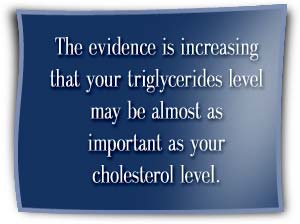
My sibling has heart disease. Does this mean I will get it too?
|
It is well established that a history of heart disease in a person’s parents indicates that that person has a significantly increased chance of also having heart problems. This is particularly true with disease of the arteries of the heart (coronary artery disease), high blood pressure (hypertension), and stroke. There is recent evidence to show that if a sibling has cardiovascular disease (CVD), an increased risk for CVD exists in the other siblings. This association was specifically noted when the sibling developed the disease under the age of 60. The risk between siblings is greater than the already known risk demonstrated between parents with CVD and their children.
|
What foods can a vegetarian have while on warfarin (Coumadin), the blood thinner? All soy products are no-no’s, as are green vegetables and many fruits and juices. Fish and chicken are recommended. Many elderly people face this dilemma.
|
You ask a very important and pertinent question related to the use of the blood-thinning medication warfarin (or Coumadin). Although many elderly people face this dilemma, diet may be a problem for all people who take warfarin. It is of paramount importance that you discuss this matter in detail and depth with your physician. Warfarin is a medication that is used in patients who have had a clot or thrombosis. It is called a blood thinner by the layperson. However, it is an anticoagulant, which means that it prevents the formation of clots. Warfarin has been shown to significantly decrease the problems of abnormal clotting and extend life in patients who have the tendency to form clots (stroke, clots in the lung, heart valve abnormalities, deep-vein thrombosis, and certain clotting problems that are hereditary).
|
 Vitamin K is important in the formation of clots. Warfarin blocks the action of vitamin K in the chemical reactions involved in the clotting process. Vitamin K is obtained from green, leafy vegetables including broccoli, kale, and spinach. Variations in dietary intake, especially of vitamin K-rich foods, may alter the anticoagulant (blood-thinning) effect of warfarin. Other factors that interfere with the effect of warfarin include interactions with other medications as well as the patient’s genetically determined ability to metabolize (or use) warfarin. In the liver there are chemical systems that process medications, and the system for warfarin varies genetically from patient to patient. For these reasons, warfarin treatment needs to be very carefully controlled with blood tests that measure the ability of the blood to clot. This test is called the INR (international normalized ratio).
Vitamin K is important in the formation of clots. Warfarin blocks the action of vitamin K in the chemical reactions involved in the clotting process. Vitamin K is obtained from green, leafy vegetables including broccoli, kale, and spinach. Variations in dietary intake, especially of vitamin K-rich foods, may alter the anticoagulant (blood-thinning) effect of warfarin. Other factors that interfere with the effect of warfarin include interactions with other medications as well as the patient’s genetically determined ability to metabolize (or use) warfarin. In the liver there are chemical systems that process medications, and the system for warfarin varies genetically from patient to patient. For these reasons, warfarin treatment needs to be very carefully controlled with blood tests that measure the ability of the blood to clot. This test is called the INR (international normalized ratio).I know that total cholesterol, HDL cholesterol (good cholesterol) and LDL cholesterol (bad cholesterol), levels are important regarding coronary artery disease. My husband has high levels of triglycerides in his blood. Is this as important as an elevated cholesterol?
|
Triglycerides are a form of fat transported in the bloodstream. They come from food, but are also made in the body when the liver converts excess calories from fats, proteins, and carbohydrates into triglycerides. They are used by the body as a source of energy. Triglycerides do not get nearly as much attention as cholesterol, but the evidence is increasing that your triglycerides level may be almost as important as your cholesterol as a marker for potential heart disease. This is especially true if you have other risk factors for coronary heart disease (CAD), such as high blood pressure, diabetes, a family history of CAD, or obesity. Not only are high triglycerides a marker for CAD, but recent studies provide convincing evidence that high triglycerides on their own are a risk factor for CAD.
|
• Reduce calorie intake and strive to reach your ideal weight.